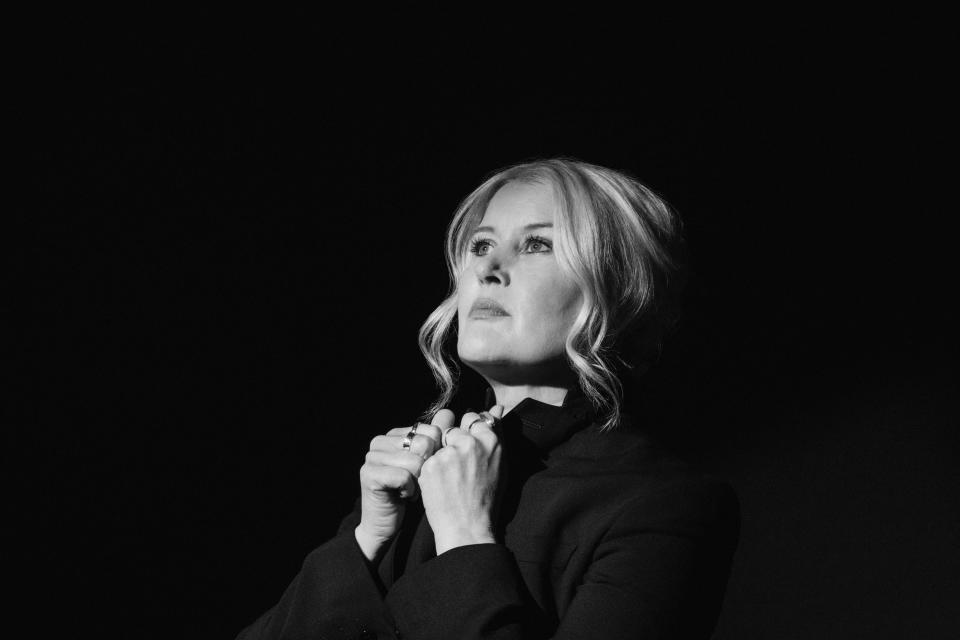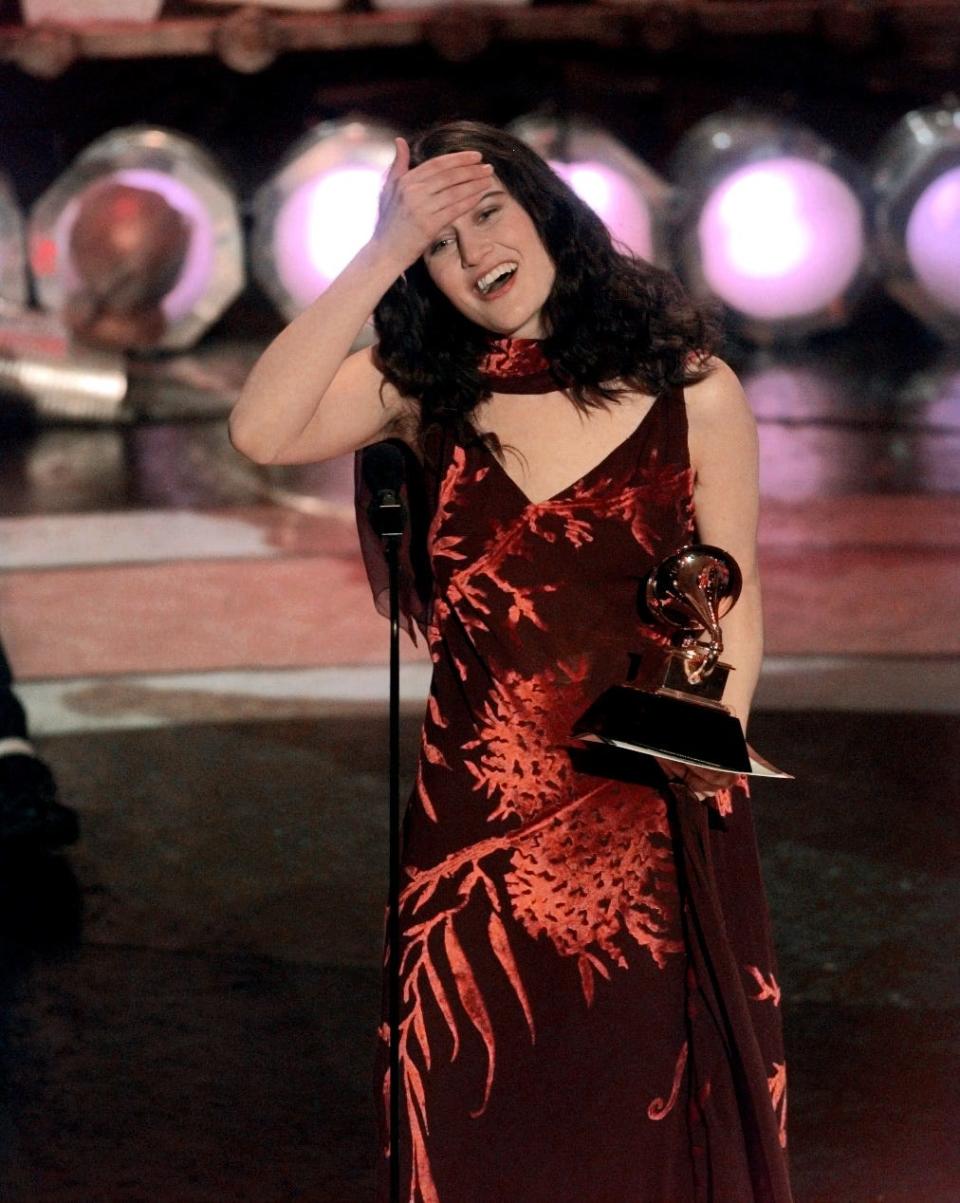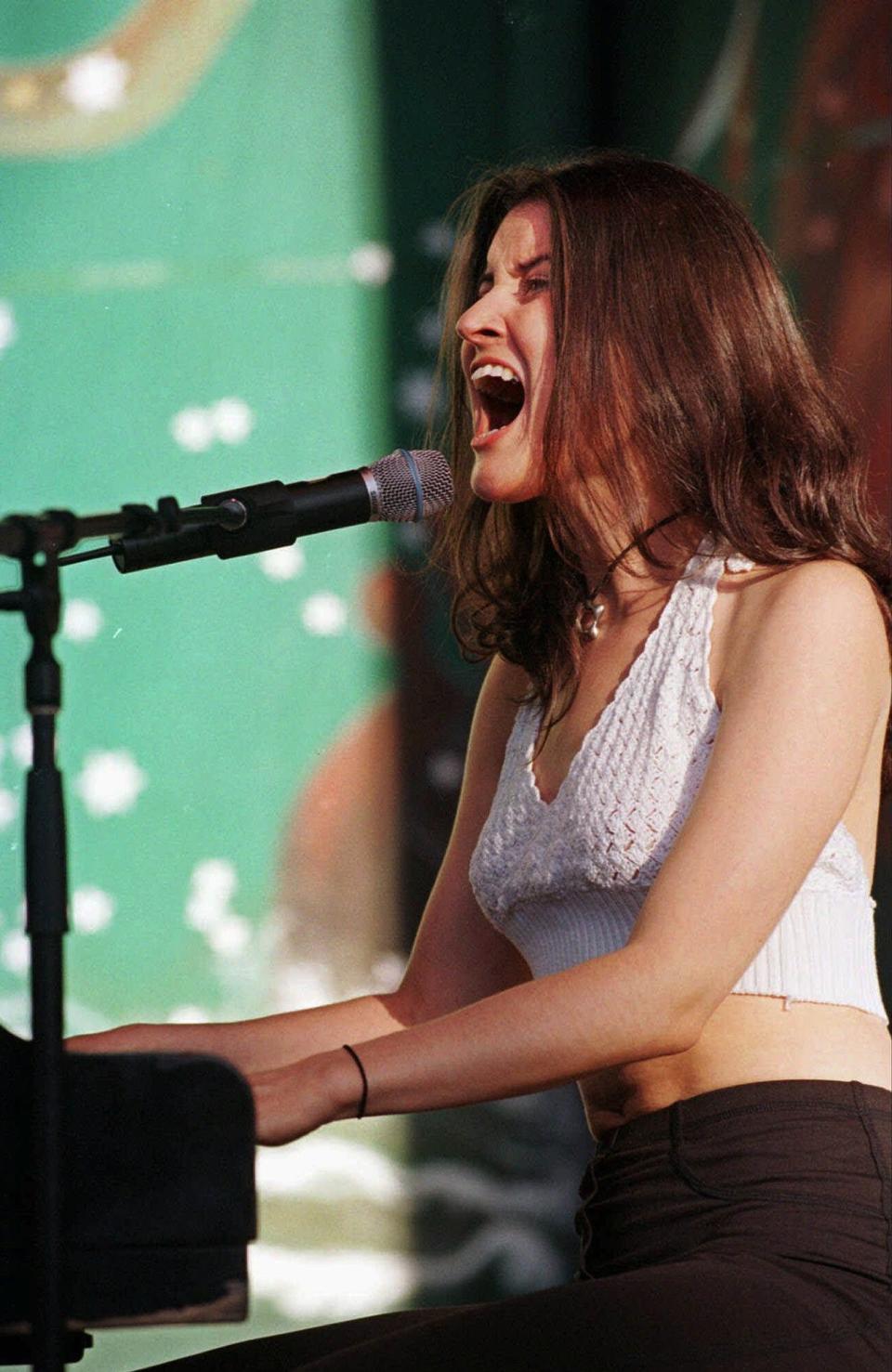Paula Cole reveals why she 'went away' post-Grammys win, praises Taylor Swift's 'extraordinary' rerecordings
- Oops!Something went wrong.Please try again later.
- Oops!Something went wrong.Please try again later.
Listening to Paula Cole is equal parts pleasure and music history lesson.
Throughout our half-hour conversation, the seven-time Grammy-nominated singer (and best new artist winner in 1998) speaks with encyclopedic knowledge about the artists who have inspired her. She lovingly recalls her childhood in Rockport, Mass., where her musical education began with the likes of Bobbie Gentry, Duke Ellington and Bob Dylan. She reverently discusses the "painful" history of Black trailblazers Bessie Smith and Billie Holiday and says she "worships at the altar" of Dolly Parton and Aretha Franklin.
"I love learning about all the masters that have trickled down to me and to you," says Cole, a visiting scholar in performance studies at Berklee College of Music. "I hope I am always curious and not bitter, because bitterness is the death of a human soul, right? Even if things aren't going well for me, I go back to the music, which is this lifetime of supplication."
Pink talks concert doc, 'Lady Marmalade' at 10 and hitting the 'kid lottery'

Cole's new album, "American Quilt," out Friday, is a soothing, soulful patchwork honoring her mother, a visual artist, and father, a bass player in a polka band. The 10-track effort reflects her parents' eclectic tastes, with covers of folk, jazz, and gospel standards made famous by Louis Armstrong ("What a Wonderful World"), Emmylou Harris ("Wayfaring Stranger") and Miles Davis ("Bye, Bye Blackbird").
"I needed to represent the more folksy side of myself and all the music my dad exposed me to," Cole says. "I didn't know how to make (the album) cohesive, but then I thought of my mom and her quilting. I see music visually, so I thought of it as a quilt."
The album also features an original composition, "Hidden in Plain Sight," addressing the "shameful history of slavery" in America, Cole says. She drew from her research about secret messages that were sewn into quilts to help slaves escape on the Underground Railroad.
"Part of my responsibility is talking about the hard stuff," Cole says. "The whole discovery for me of slave quilts was so profound that I needed to include it in this 'American Quilt.' I wrote a song about it because there was nothing out there to represent it."
Huge success proved 'traumatic' for the self-described introvert
"American Quilt" is the 11th studio album for Cole, 53, who got her start as a backup singer for Peter Gabriel in the early '90s. She broke through as a solo artist in 1996 with second album "This Fire," which spawned signature anthem "I Don't Want to Wait" and earned Cole seven Grammy nominations, including album, record and song of the year (both for "Where Have All the Cowboys Gone?", which hit No. 8 on the Billboard Hot 100 chart).
The attention around her Grammy for best new artist – followed by the release of 1999's "Amen," a commercial and critical disappointment – was a source of anxiety for Cole.
"For me, it was a bit traumatic to have such massive success," she says. "I don't think I necessarily dealt with it very well. I was introverted and shy, and I went away." She eventually founded her own label, 675 Records.
Looking back on "This Fire," Cole says she's proud of the project's "feminism." With it, she became the first woman nominated without collaborators for producer of the year at the Grammys. (Janet Jackson and Mariah Carey had been nominated with male co-producers).

A woman has yet to win the award, which Cole finds "sad" and "shocking." She encourages women to forge ahead in producing their own music, despite the hurdles she had to go through to make "This Fire": Working "guerrilla-style" on a scant budget and constantly having to "prove myself."
"It was maddening," Cole says. "It didn't really occur to all the prospective engineers I was interviewing (that I'd produce). As soon as they met me, based on my gender and my age, they would automatically assume they'd be producing and I was in this relationship of being patronized. Then I finally met Roger Moutenot, this beautiful engineer who was really comfortable with me in that position as producer.
"It just shows you how rare it was for a man to be in that more supportive position with a woman at the helm."
Compensating artists is 'key,' Cole says of 'Dawson's Creek' dispute
Years later, Cole fought another behind-the-scenes battle with "I Don't Want to Wait." The wistful track was the theme song for teen drama "Dawson's Creek" when it aired on the WB from 1998 to 2003. But it was later replaced by Jann Arden's "Run Like Mad" when the show hit streaming because of an expired licensing agreement.
"It was a little disorienting and an uncomfortable situation for both Jann and I, because we don't wish any ill will upon each other," Cole says. "It was just this abrupt change by a studio head to save money."

In response, Cole recorded a new master of the song, which Sony will restore as the series theme at a date still to be determined.
"It's not just a win for me – it's a win for all artists," she says. "It's a harbinger of change, bringing back original music to TV series and compensating artists. That's key, because I wasn't going to give away my music free, and I wasn't going to give away my old master that was recorded with a very corrupt deal."
'Fearless (Taylor's Version')': All the new songs, notable lyrics and biggest changes
She commends Taylor Swift, who is rerecording and re-releasing her past albums after her master tracks were sold without her consent or knowledge.
"I think she's been extraordinary," Cole says. "Sometimes that's the only way and that's the best way, because it's the positive way. When you're stuck with lawyers and threats and lawsuits? Oh, that's onerous and prohibitively expensive. So she's going about her business in recreating her legacy and owning those masters.
"I think that's wonderful that she's claiming control of her life that way, so bravo."
This article originally appeared on USA TODAY: Paula Cole talks 'American Quilt,' 'traumatic' experience with fame

